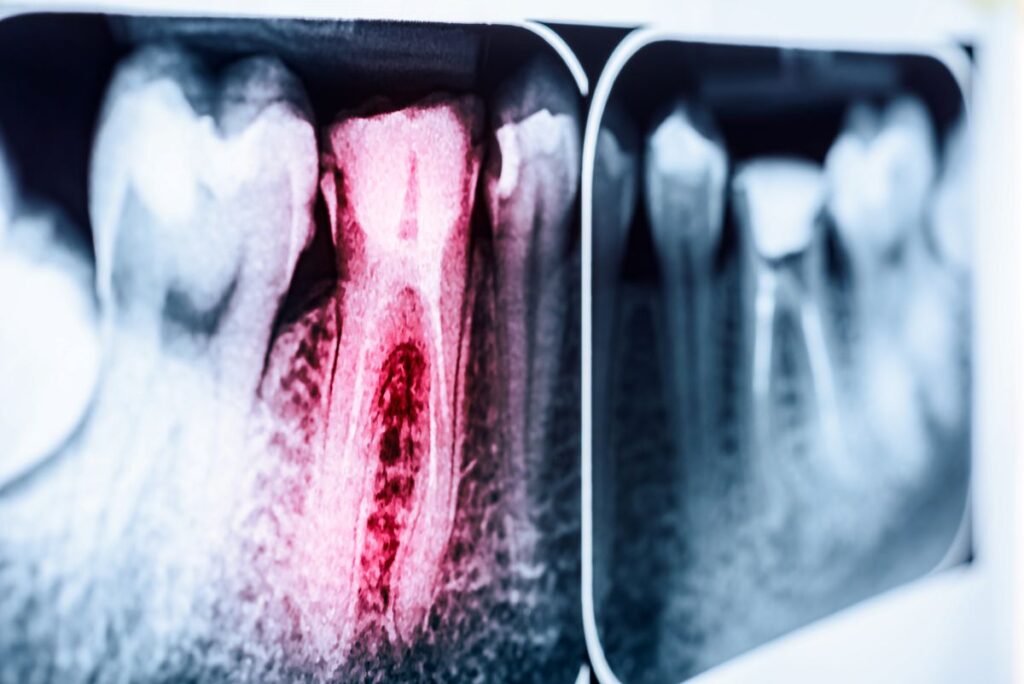
Sometimes it’s obvious that something is wrong with your tooth. Whether it’s in pain, there’s an obvious crack, or its suddenly loose, noticeable changes are an excellent indication of a problem. But what happens when your dentist tells you that you need a root canal and it doesn’t even hurt? Here’s why you could still require treatment, even if you don’t have any abnormal symptoms.
What is a Root Canal?
A root canal is a treatment used to repair a damaged or infected tooth. After numbing the area, your dentist will remove the infected pulp and clean out the root canals within. Once clear, he or she will then replace the pulp with a synthetic material known as gutta percha. This not only prevents new infection from forming, but it also keeps the tooth alive. It is then sealed back up with a filling or crown, and in most cases will last a lifetime.
Root canals can be performed on teeth that have deep cracks, breaks, decay, or infections, and contrary to popular belief you don’t need to be able to see any damage or feel any discomfort for them to require treatment.
Why Do I Need a Root Canal if I’m Not in Pain?
While pain is often the first sign that there’s a problem with your tooth, it is not always a reliable indicator, because not all tooth infections are painful. In fact, even infections that hurt at first can be misleading, because if you wait too long to treat them, they could stop hurting if they damage the tooth badly enough. This in turn may lead you to believe the infection has healed, when it could be spreading or worsening!
Do Root Canals Hurt?
If you’re experiencing a tooth infection or decay that isn’t painful, it may seem counterintuitive to then get a procedure that will cause discomfort. But the good news is that contrary to popular myth, root canals don’t hurt. In fact, your dentist’s first step will always be to numb your tooth and the surrounding area before beginning any work. Once the numbness has worn off, you may experience some discomfort for several days, however this is only temporary and usually well managed with over-the-counter pain reliever. Best of all, once you have finished healing, your tooth will be healthy and strong and should be fully functional with no risk of spreading infection to your surrounding teeth and the rest of your body.
Remember, while it may come as a surprise to hear you need a root canal, you can rest assured that if your dentist is recommending this treatment, you are very fortunate it’s not too late to save your tooth. If left untreated, infections and decay could result in worsening infection and even tooth loss. Thus, even if you feel perfectly fine, if your dentist advises that you need a root canal, you can rest assured that this is the right choice for your smile.
About Dr. Chenet
Dr. Cedric Chenet earned his DDS degree from Howard University and served as a dental officer in the Air Force after graduation. He retired from the air force in December 2002 and started his practice shortly after. Today, Dr. Chenet is proud to enhance patient comfort in his fully computerized, high-tech office. Whether you’ve got tooth pain, damage, or your tooth injury came as a complete surprise, Dr. Chenet and the team are here to help. To schedule a root canal, please visit our website or call us today at 321-253-3136.
